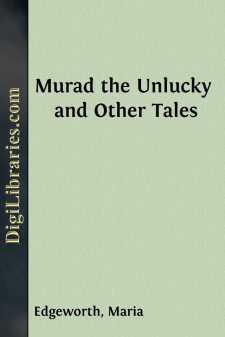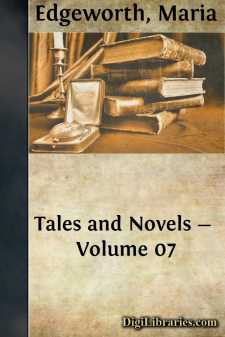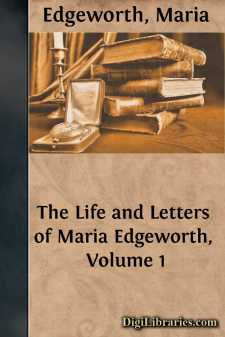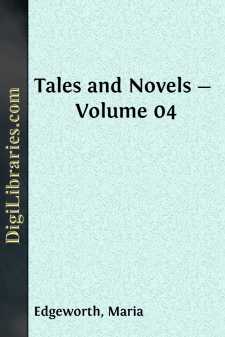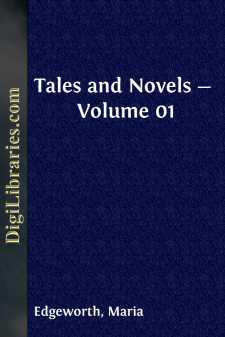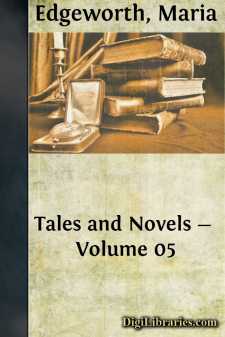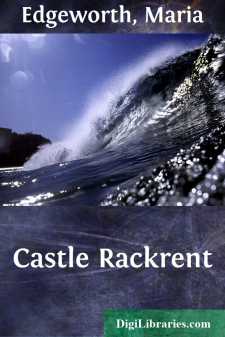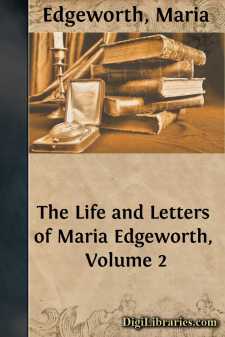Categories
- Antiques & Collectibles 13
- Architecture 36
- Art 48
- Bibles 22
- Biography & Autobiography 813
- Body, Mind & Spirit 142
- Business & Economics 28
- Children's Books 17
- Children's Fiction 14
- Computers 4
- Cooking 94
- Crafts & Hobbies 4
- Drama 346
- Education 46
- Family & Relationships 57
- Fiction 11829
- Games 19
- Gardening 17
- Health & Fitness 34
- History 1377
- House & Home 1
- Humor 147
- Juvenile Fiction 1873
- Juvenile Nonfiction 202
- Language Arts & Disciplines 88
- Law 16
- Literary Collections 686
- Literary Criticism 179
- Mathematics 13
- Medical 41
- Music 40
- Nature 179
- Non-Classifiable 1768
- Performing Arts 7
- Periodicals 1453
- Philosophy 64
- Photography 2
- Poetry 896
- Political Science 203
- Psychology 42
- Reference 154
- Religion 513
- Science 126
- Self-Help 84
- Social Science 81
- Sports & Recreation 34
- Study Aids 3
- Technology & Engineering 59
- Transportation 23
- Travel 463
- True Crime 29
Maria Edgeworth
Maria Edgeworth (1768–1849) was an Anglo-Irish novelist known for her pioneering work in children's literature and her keen social and political commentaries. Her notable works include "Castle Rackrent" (1800), a satirical novel often regarded as the first historical novel, and "Belinda" (1801), which challenged contemporary views on women's roles. Edgeworth's writing significantly influenced the development of the novel in the 19th century and provided critical insights into Irish society and British colonialism.
Author's Books:
Sort by:
by:
Maria Edgeworth
INTRODUCTION Maria Edgeworth came of a lively family which had settled in Ireland in the latter part of the sixteenth century. Her father at the age of five-and-twenty inherited the family estates at Edgeworthstown in 1769. He had snatched an early marriage, which did not prove happy. He had a little son, whom he was educating upon the principles set forth in Rousseau’s “Emile,” and a...
more...
by:
Maria Edgeworth
CHAPTER I. "How the wind is rising!" said Rosamond.—"God help the poor people at sea to-night!" Her brother Godfrey smiled.—"One would think," said he, "that she had an argosy of lovers at sea, uninsured." "You gentlemen," replied Rosamond, "imagine that ladies are always thinking of lovers." "Not always," said Godfrey; "only when they...
more...
by:
Maria Edgeworth
MARIA EDGEWORTH In the flats of the featureless county of Longford stands the large and handsome but unpretentious house of Edgeworthstown. The scenery here has few natural attractions, but the loving care of several generations has gradually beautified the surroundings of the house, and few homes have been more valued or more the centre round which a large family circle has gathered in unusual...
more...
by:
Maria Edgeworth
MARIA EDGEWORTH Rosamond, a little girl about seven years of age, was walking with her mother in the streets of London. As she passed along she looked in at the windows of several shops, and saw a great variety of different sorts of things, of which she did not know the use or even the names. She wished to stop to look at them, but there was a great number of people in the streets, and a great many...
more...
by:
Maria Edgeworth
PREFACE The prevailing taste of the public for anecdote has been censured and ridiculed by critics who aspire to the character of superior wisdom; but if we consider it in a proper point of view, this taste is an incontestable proof of the good sense and profoundly philosophic temper of the present times. Of the numbers who study, or at least who read history, how few derive any advantage from their...
more...
by:
Maria Edgeworth
THE BRACELETS. In a beautiful and retired part of England lived Mrs. Villars, a lady whose accurate understanding, benevolent heart, and steady temper, peculiarly fitted her for the most difficult, as well as most important of all occupations—the education of youth. This task she had undertaken; and twenty young persons were put under her care, with the perfect confidence of their parents. No young...
more...
by:
Maria Edgeworth
PREFACE. It has been somewhere said by Johnson, that merely to invent a story is no small effort of the human understanding. How much more difficult is it to construct stories suited to the early years of youth, and, at the same time, conformable to the complicate relations of modern society—fictions, that shall display examples of virtue, without initiating the young reader into the ways of...
more...
by:
Maria Edgeworth
CHAPTER I. "And gave her words, where oily Flatt'ry lays The pleasing colours of the art of praise."—PARNELL. NOTE FROM MRS. BEAUMONT TO MISS WALSINGHAM. "I am more grieved than I can express, my dearest Miss Walsingham, by a cruel contre-temps, which must prevent my indulging myself in the long-promised and long-expected pleasure of being at your fête de famille on...
more...
by:
Maria Edgeworth
INTRODUCTIONIThe story of the Edgeworth Family, if it were properly told, should be as long as the ARABIAN NIGHTS themselves; the thousand and one cheerful intelligent members of the circle, the amusing friends and relations, the charming surroundings, the cheerful hospitable home, all go to make up an almost unique history of a county family of great parts and no little character. The Edgeworths were...
more...
by:
Maria Edgeworth
I am sure that you have heard of us, and of all we have done and seen from Edgeworthstown as far as Berne: from thence we went to Thun: there we took char-à-bancs, little low carriages, like half an Irish jaunting car, with four wheels, and a square tarpaulin awning over our heads. Jolting along on these vehicles, which would go over a house, I am sure, without being overturned or without being...
more...


